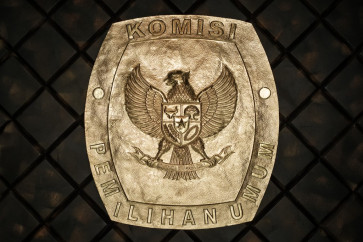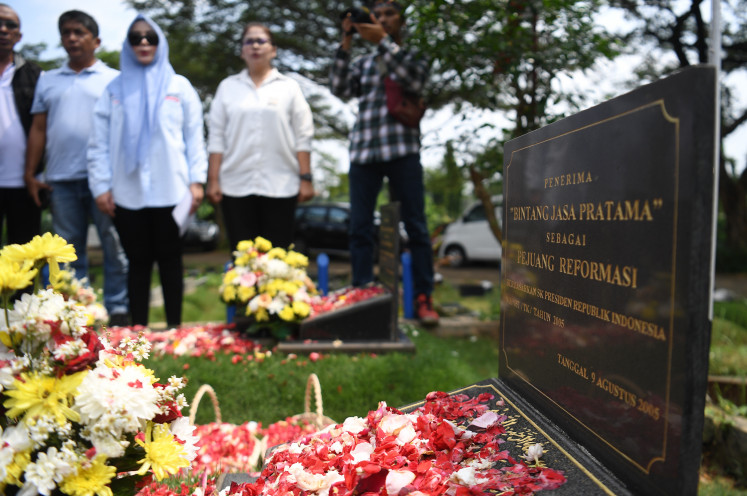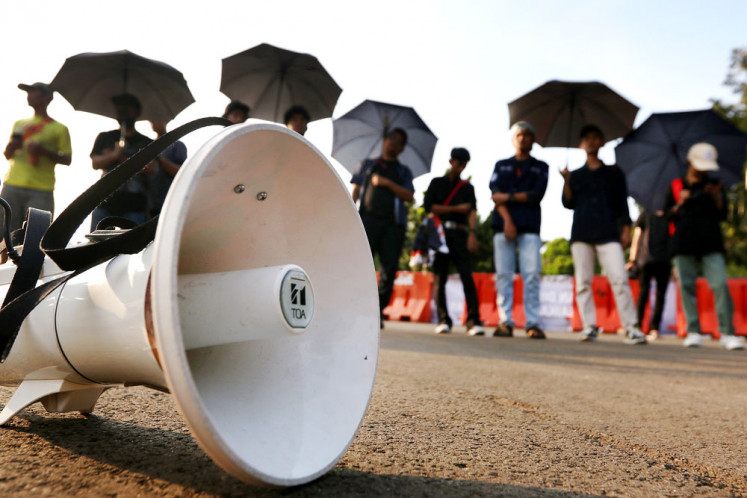RI may have to import coal by 2020: PLN
Indonesia is currently the worldâs biggest thermal coal exporter but Southeast Asiaâs largest economy may have to import the fossil fuel in the next decade to meet its power needs, the countryâs main utility firm says
Change Size

I
ndonesia is currently the world's biggest thermal coal exporter but Southeast Asia's largest economy may have to import the fossil fuel in the next decade to meet its power needs, the country's main utility firm says.
State-owned PT Perusahaan Listrik Negara (PLN) coal division head Helmi Najamuddin said in an interview recently that the country exported 305 million tons of coal last year but only consumed 67 million metric tons for domestic needs.
'Coal consumption was only 18 percent of the total output in 2012 as the rest was exported. But the domestic need for coal will surge in the coming years and we may have to import coal to meet the demand,' he said at PLN's headquarters in Jakarta.
Helmi cited research by Wood Mackenzie, an Edinburgh-based global energy research group, which said that while Indonesia's coal reserves were only 3 percent of the world's total resources, the country remains the biggest coal exporter in the world as its exports were higher than its domestic consumption.
Indonesia's coal reserves are estimated at 20 billion tons, according to data from the country's mining associations, which is smaller than other countries such as China, which has coal reserves of 115 billion tons, and Australia, which possesses around 76 billion tons of reserves.
'Next year, the country will need 67.8 million tons of coal to produce electricity [from both PLN and independent producers]. This may increase to 101.4 million metric tons in 2017 and 125.7 million tons in 2020, which means at that time we may have to import coal,' he said.
This year, the government set the quota under its domestic market obligation (DMO) policy for coal miners at 74.2 million tons for 2013 or 9.4 percent lower than the 82.02-million-ton quota imposed for 2012.
Out of the total quota, PLN, while still receiving the lion's share for 2013 of 49.29 million tons has been allocated less than in 2012 as delays in building power plants meant that PLN only used 60 percent of the 57.2 million tons allocated to it for 2012.
Helmi said the government should not lower the DMO merely because PLN did not consume all the coal that had been allocated because several of its coal-fired power plants had not entered operation as planned. 'We acknowledge that we must speed up the construction of the power plans but lowering the domestic quota, which means increasing exports, is not the answer,' he said.
In addition, he said, the country did not levy an export tax on coal producers, thus encouraging miners to sell their coal overseas.
In response to PLN's complaint, the Energy and Mineral Resources Ministry director general for electricity Jarman Sudimo said the DMO policy was to ensure the domestic need for coal remained covered.
'The ministry's geology body has said that Indonesia has proven coal reserves of 28 billion tons and 120.34 billion tons of potential resources. Under the assumption that we produce 350 million tons of coal per year, these reserves will still be available for the next 80 years and thus our position is still safe for now,' he said.









